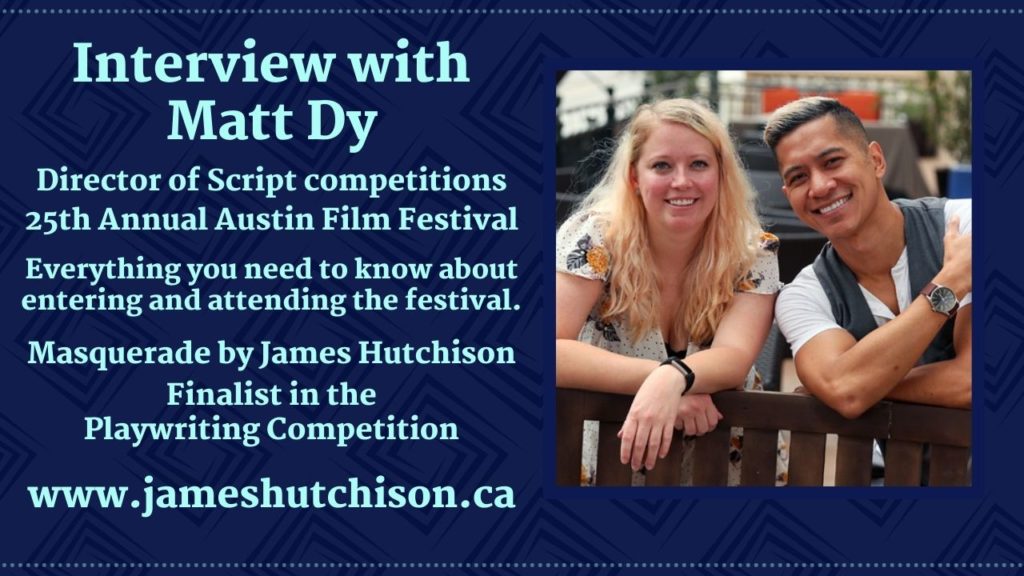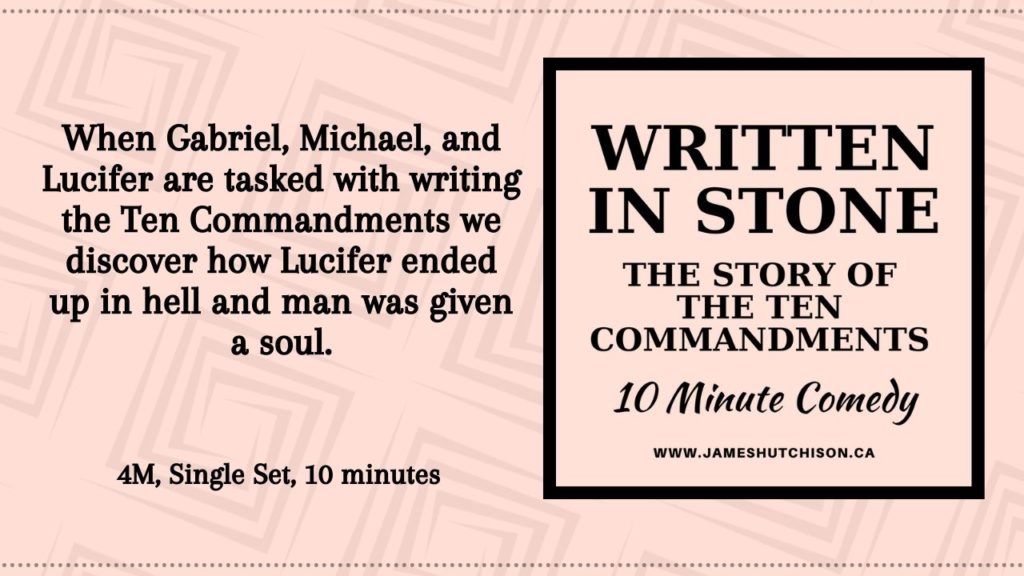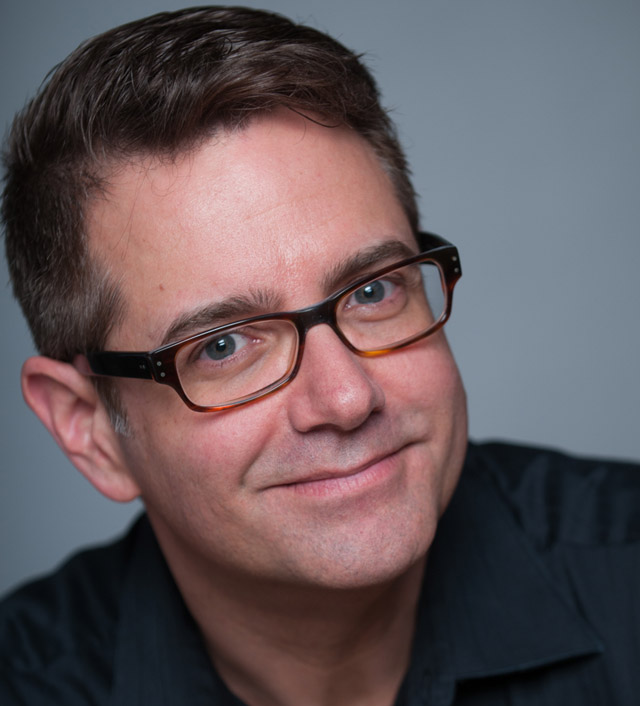
“Music is able to tap right into a visceral emotional reaction that doesn’t require words or which can layer on top of words so there’s a whole other way of communicating that comes into play, because yes there are usually lyrics but the music can lift and elevate those lyrics and actually create a short cut to your emotional core and make you feel things. And when movement and dance get involved that’s a whole other level of expression. It’s really all the arts because theatre involves architecture and colour theory and costume and literature and music and dance and so musical theatre is sort of all the arts in the pursuit of a single vision or message.”
When the boys from St. Mark’s join the girls from St Anne’s to present Cyrano de Bergerac, three friends get more of an education that they bargained for. Love blossoms, jealousies flare, and secrets are revealed that may end their youthful innocence forever as life imitates art in this funny and poignant coming of age story. Winner of five awards for excellence at the New York Musical Festival, Crossing Swords is a backstage musical that shows that sometimes being yourself is the most heroic act of all.
I dropped into the Beddington Theatre Arts Centre, a couple of weeks ago where rehearsals were underway for Crossing Swords, in order to talk with Joe Slabe about musical theatre and the journey his play has taken to reach the stage.
JAMES HUTCHISON
You’re in musical theatre. You’re a composer. Sometimes you’re on stage.
JOE SLABE
Yup.
JAMES
So, I was wondering what kind of music does Joe Slabe listen to when he’s home alone just chillin’?
JOE
I listen to a lot of musicals obviously, because I’m passionate about those, but I like jazz, and I still like classical. I was trained as a classical pianist. So, it depends on my mood. I also still like the pop music of my youth – the pop music of the eighties – and so. if I’m having people over sometimes I’ll just put on that channel on Stingray.
JAMES
Any particular artists? Any particular songs?
JOE
I would say the big popular musical influences on me were the piano-based artists like Billy Joel and Elton John, because you could feel cool as a piano player because they made the piano rock – which was great. And I think every generation discovers the Beatles, and I discovered the Beatles when I was in my teens, and they were a huge influence on me.
JAMES
So, what was the vision behind the creation of the Forte Musical Theatre Guild?
JOE
I was writing these little musicals and I was really interested in the idea of new musical theatre in Calgary because everyone was doing new plays, but no one was doing new musicals. And I was pitching them, and no one would touch them. They said, “No they’re too expensive. You can’t do that.” And then I went well, “Be the change you want to see.” And so, I started the company, and what’s interesting is that within two or three years suddenly everyone was doing new musicals. But that’s okay, we were the first.
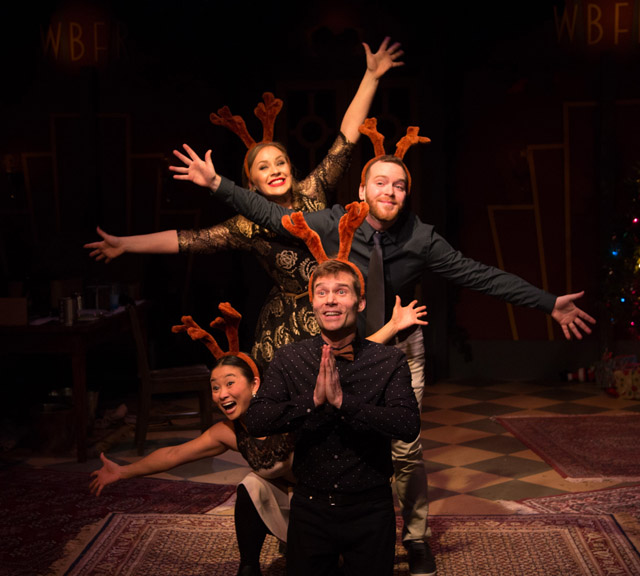
JAMES
Having your own company gives you more control over the process.
JOE
Yes, you’re not waiting around forever for people to workshop your stuff or whatever. The thing is, I’ve really been trying to work with younger writers too, and that’s why the review shows that we do are so great, because you don’t have to write a whole musical. You can write a song and get a chance to see how it plays in front of an audience. So, in a show like Naughty but Nice or Touch Me – Songs for a (dis)connected Age those were shows structured around a theme where a young writer has a chance to write material for a show, but they didn’t have to write an entire show.
JAMES
I read in an interview you sent me that during your first year of high school you were playing the music for a production of West Side Story.
JOE
Yes.
JAMES
And that really sparked your love for musical theatre, but I’m wondering now, many years later, what do you retain from that young kid who first thought that theatre was special and magical?
JOE
It’s the sense of finding my tribe, I think, this group of people who care about the same things I do. And I feel like musical theatre is a force for good in the world. If you look at the history of musical theatre its always been, sort of, on the leading edge of social justice like, Showboat, which came out in the 1920s and tackled racism head-on or West Side Story where they don’t demonize either group of kids – they just recognize that juvenile delinquency arose out of big social problems, and I think theatre has always been ahead of movies and television in addressing social or hot button issues.
JAMES
Do you think theatre has the ability to respond quicker and to get that work out there?
JOE
And there are fewer filters on the writer and the artists, because in theatre the playwright is the final word. You can’t change a single word without the playwright’s permission. Whereas, in movies the author is the studio, and so they can hire and fire the writer and still own the show, and they can bring someone in to change it. In theatre you can do it faster and there are fewer filters that you have to pass through.
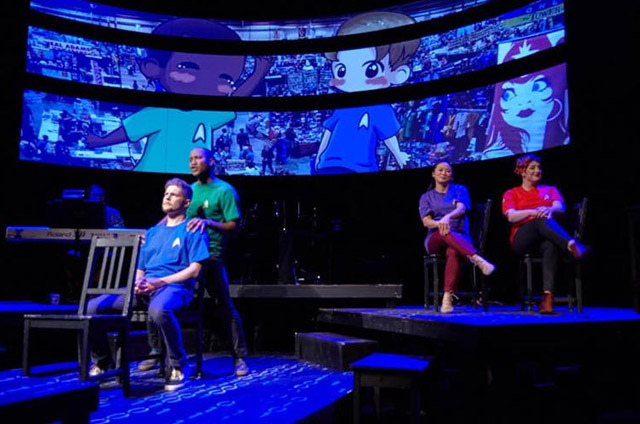
JAMES
So, what do you think are the unique opportunities for musicals to tell stories?
JOE
It communicates directly with your gut. Music is able to tap right into a visceral emotional reaction that doesn’t require words or which can layer on top of words, so there’s a whole other way of communicating that comes into play, because yes, there are usually lyrics, but the music can lift and elevate those lyrics and actually create a short cut to your emotional core and make you feel things. And when movement and dance get involved that’s a whole other level of expression. It’s really all the arts because theatre involves architecture and colour theory and costume and literature and music and dance and so musical theatre is sort of all the arts in the pursuit of a single vision or message.
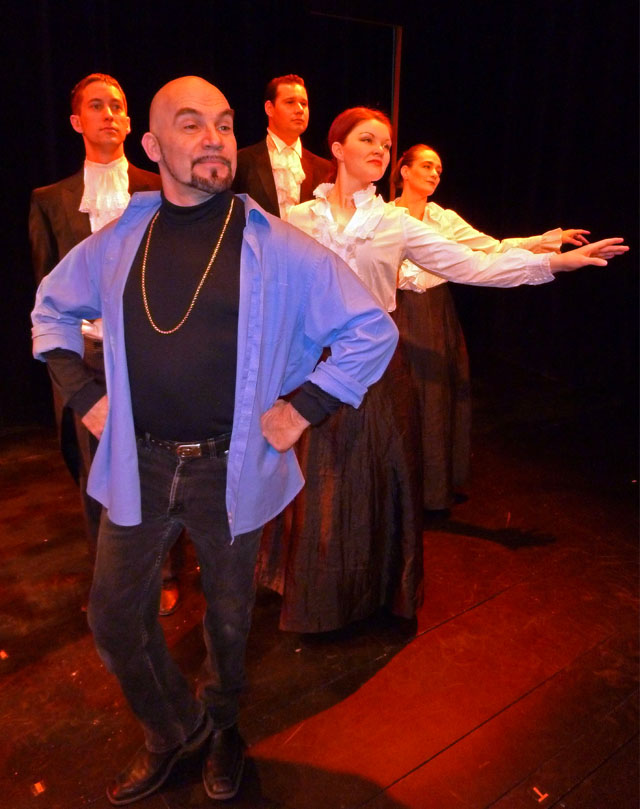
JAMES
Well, let’s talk a little bit about Cyrano de Bergerac, because that is your inspiration for your play Crossing Swords, and I’m wondering what is it about the original story – the original play – that appeals to you?
JOE
I’m in awe of it because if it’s done right, and I’ve seen it done well and I’ve seen it done really badly, but if it’s done right, it’s really funny. It’s lushly romantic. There’s sword fighting, and it’s tragic, and it’s heartbreaking, and I can’t think of another play that balances those elements so well. And so, my challenge was to try and write a show that was funny and was romantic and was sad. And when I started writing it-it was going to be a tragedy, but I backed off the tragic element of the show when the Dan Savage, “It Gets Better” campaign happened, and I kind of went, “You know the world doesn’t need another gay coming of age tragedy. The world needs a gay coming of age hero.” But the ending is bittersweet because of the love triangle. No one gets what they want, and they all emerge a little bit bruised but wiser, and the kids are alright in the end.
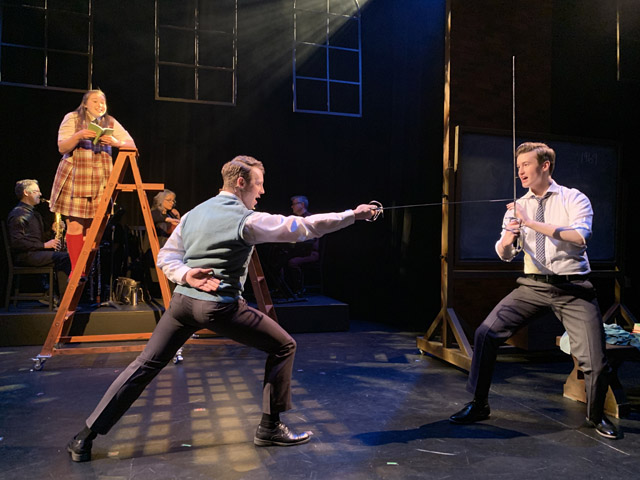
JAMES
So, how did the idea for Crossing Swords actually begin?
JOE
I was doing my masters in musical composition in London and up until then I was writing mostly comic stuff, and my sense of humour was a little bit dirty and kind of smart-alecky, so a lot of the songs in my book were these smart witty things, and my instructor on the course said, “You know talking to you-you seem like the kind of guy that cries at long distance commercials. You know, I feel like you are a very sentimental person, and yet I don’t see any of that in what you write.” And he challenged me to write something that was from my heart instead of from my head. And I sort of took that on board, and I went well, “I think that’s true,” and I remembered when I was a teacher at St Francis, we had done a production of Cyrano and how much I had loved it. And I’d say Crossing Swords is kind of a summation of all my teaching experience, because I taught stage combat, so there’s stage combat in the show, and I taught with amazing colleagues, and so – the teachers in the play are kind of composites of a bunch of people I worked with that I thought were really fantastic, and the kids are composites of the thousands of kids that I taught and how cool they were, and so – I found myself drawing on all that and the affection that I felt for the characters arose out of the affection for this program I taught and working with these colleagues and with these students, and I think that comes through in the show, because there’s no villain. Like not even the uptight math teacher even. I think we learn a lot about him and grow to like him. I love all of the characters in the show, but there are conflicts that arise.
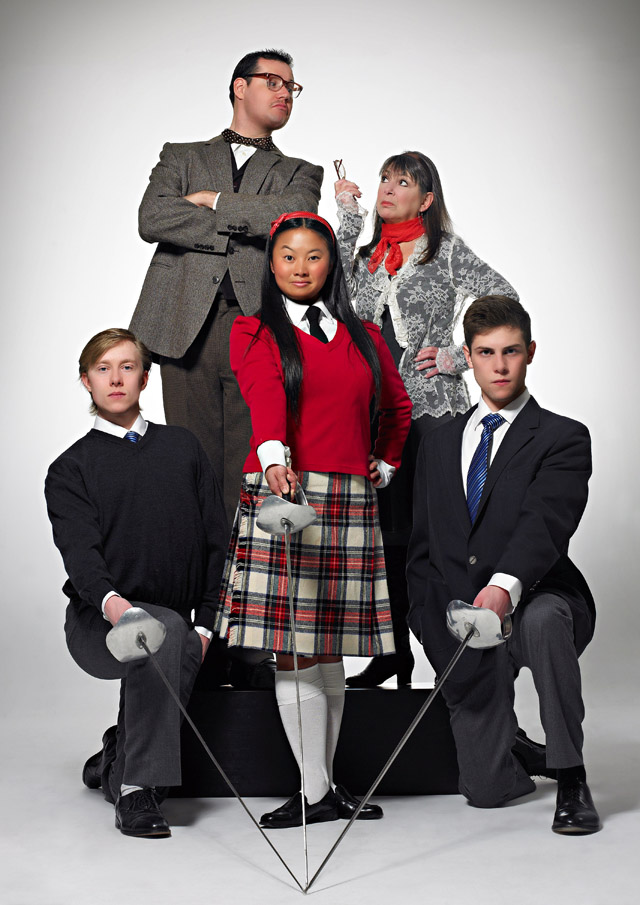
JAMES
Did having such a personal attachment to the material make it an easier show to write or a more difficult show to write?
JOE
It’s one of the few times where I’ve been writing and it really was like taking dictation. A lot of writer’s talk about this experience of suddenly the characters just start talking to them, but it had never happened to me before, and what was really weird was – as I’m typing they were saying things that were surprising me. It’s a freaky experience, because I’d go like, “Oh, really? Are we going there? Holly Crow! Oh my God!” And that’s my inner monologue as I’m typing what the characters are saying. So, that was certainly easy. The other thing was a lot of times when you’re writing comedy you’re never really sure if it’s good until it’s in front of an audience, but as I was writing this show I was pretty sure that it was good, and moreover I actually didn’t care what people thought of it, because I believed that it was good. So, that was a very unique experience for me.
JAMES
So you wrote the first act while you were taking your masters in London in 2005. And then it kind of percolated for about six years while you went off and did a bunch of other stuff, and then you wrote the second act and finished the play for the New York Musical Festival.
JOE
No, I wrote it for here first. And it was called Jeremy de Bergerac, and we did it in the Joyce Dolittle at the Pumphouse Theatre. It was one of those things where I was going to produce a show with Forte and the rights for that show fell through, and then I needed a show, and I kind of went, “Oh, maybe this is the universe saying you should finish this show?” So, I did.
JAMES
So, you produced it in Calgary in 2012 and then at the New York Musical Festival in 2013, and then you had a production in 2016 with The American Theatre Group in New Jersey, and now you have the production here. So, you’ve had multiple directors and performers and several different people all contributing to the development of the musical over a period of many years, and I’m wondering what do you get from all these different collaborators?
JOE
Well, the great thing is when you have actors inhabiting the role they’re really focused on their individual character. When you’re the playwright you’re looking at the big picture, and even as a director you’re looking at the big picture. But an actor is really interested in their character. So you get great notes from actors, and I trust – if an actor is having trouble with a line and if they’re a good actor – chances are there’s a problem with that line. And seeing different actors in a role is really interesting because they make different choices, and it shows you that there’s always more than one way to do things that can be equally effective.
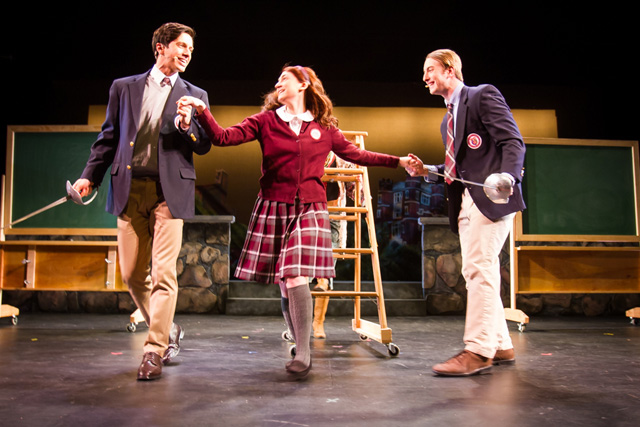
JAMES
How do you determine which notes are the ones I’m going to take and seriously have a look at, and how do you determine which ones might not be something you need?
JOE
Trusting the source is number one. If you’re working with a director that you respect then their instincts are probably going to be good. I did have an experience when I was in New York at the music festival and the director Igor Golden leaned over to me in rehearsal and he just said, “The scene ends here.” And I said, “Oh yeah, but there’s this really great thing coming up.” And he said, “Yeah, but I think the scenes over.” So I said, “Okay I’m going to take it away and I just want to see – because I’ve got some really great stuff here – and so I’m just going to see if I can move that earlier in the scene and then I’ll bring it in.” And he said, “Okay, we can try it.” So, we tried it the next day, and I went, “Yeah, that sucks.” (Laughs) “You’re right. The scene ends here.”
JAMES
And it did very well at the New York Festival. It won five awards.
JOE
It did. It won for best book of a musical. So, it won for the script, and it also won something called the Theatre for the American Musical Prize which is the show that best exemplifies the American Musical Theatre Tradition of balancing book and song. I thought that was funny because I’m a Canadian.
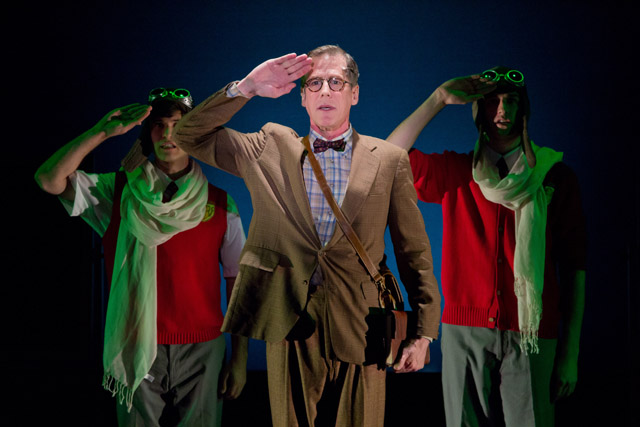
JAMES
So, let’s talk a little bit about your current creative team in this new production coming up. Who have you assembled to bring us the show in 2019 here in Calgary?
JOE
Well, I have Val Pearson directing, and sitting in rehearsal with her is like a master class in acting. She directed the very first version, and she is amazing with young actors, and we have some very young actors on the show. And JP Thibedeau who is, of course, the Artistic Director at Storybook is doing sets and lights for us, and we’re in the Vertigo Studio so that’s great. He’s very familiar with the space.
JAMES
So, you have more options than you had when you presented it at the Pumphouse in 2012.
JOE
Yeah a few more options, although we’re keeping it pretty simple. The nice thing about the show is it doesn’t require a lot of huge production elements because your imagination does a lot of the work, because it’s a memory play and we’re remembering these events that happened, because we get to see the kids as older characters and then they’re remembering this pivotal experience that changed their lives. So, because it’s a memory play we don’t need the entire cast of Cyrano, we just need the three principal characters, because that’s who we remember and these were the important events.
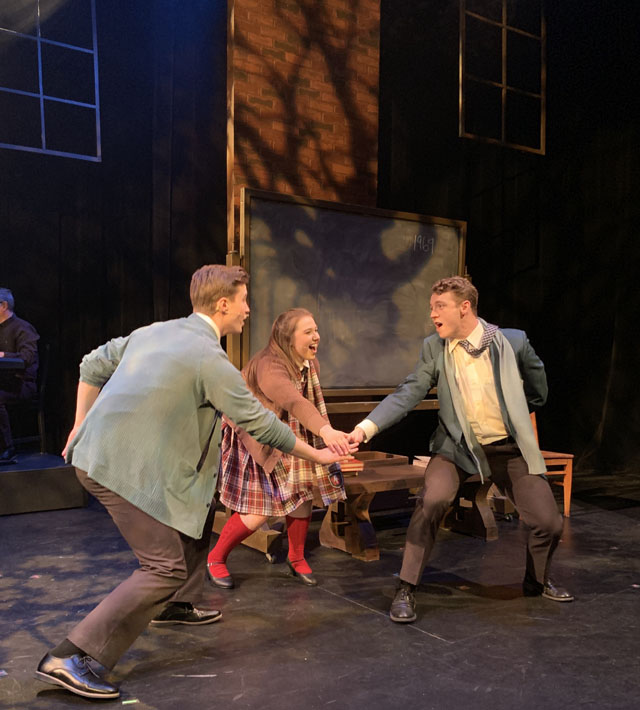
JOE
And I’m really excited about the cast. Katie McMilliam who played young Mary in Mary and Max at Theatre Calgary is in it. She also played Dorothy in the Wizard of Oz at Storybook, so it’s great to have her. Adam Forward who won the Broadway World Award for his performance in The Outsiders here at Storybook is in it, and he’s seventeen, and Katie is eighteen, and the characters are supposed to be seventeen. Adam’s still in high school, so it’s fantastic to have these actors. who are the right age, playing these parts. And then Troy Goldthrop is playing Jeremy, and he actually grew up here, and he has a little more experience. He’s been out in Ontario. He was in the Charlotte Town Festival, and he’s come back home, and he’s playing the lead in our show. And then we have Troy Doctor playing Sir who’s a musical theatre veteran here in Calgary, and Shari Wattling is playing Miss. I’ve worked with her a number of times on musicals, and she hasn’t been performing as much lately, because she was working at Theatre Calgary as their literary manager and then as their associate artistic director and then as their acting artistic director.
JAMES
Her plate was full.
JOE
Her plate was a little full, but it’s been great to get her back on the stage.
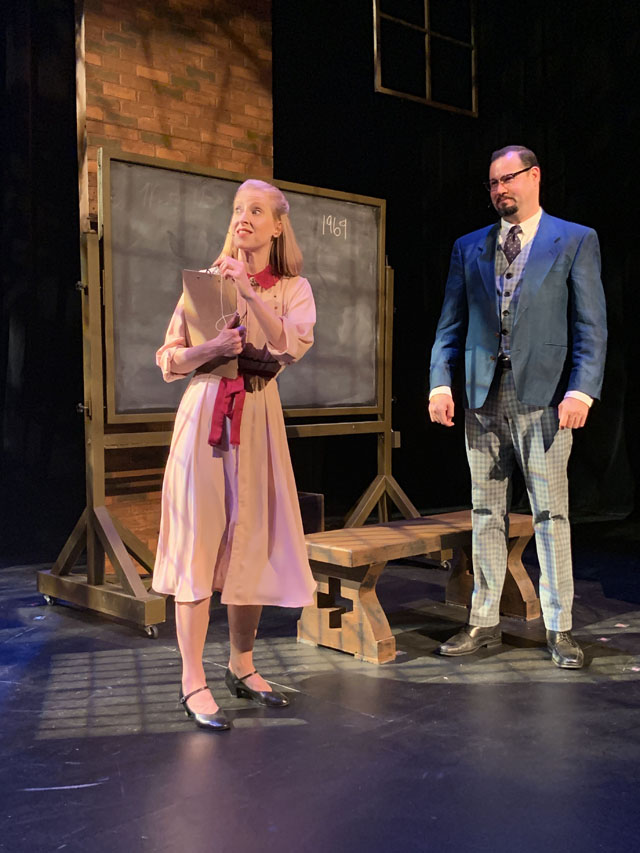
JAMES
So, why should Calgary audiences come out and see the show?
JOE
Well, they sing while fencing. They actually have stage choreography that they act out that’s timed to beats in the musical numbers, and I don’t think I’ve ever seen that before, so I think that’s pretty cool. And also, because it started here, and the level of talent from these Calgary artists is amazing, and because it’s a really timely story. You know, you always think that the battle for understanding for LGBT kids is done. You think, “oh that’s done – surely that’s accomplished” and yet we’re still talking about things that you thought were long settled and weren’t an issue, and they just come back, and so maybe we need an empathy lesson. And that’s what theatre does great. It puts you in the shoes of someone whose experience is different from yours and creates empathy. And that’s not just the gay coming of age story. The play puts you in the shoes of a math teacher who’s very uptight and has very strong opinions about the way the world should be that are quite diametrically opposed to the French drama teacher, and she has her very strong ideas about the way the world should be, and it’s not that they’re wrong – it’s just that they have different opinions, and the strength of this show is that it allows you to understand and sympathize with the other point of view. Which is something sorely lacking right now in our political and social discourse. People are so locked into their silos that they’re not willing to entertain other people’s point of views, and this show is about Jeremy and his best friend having to come to terms with – “You’re not the person I thought you were, and how do I wrap my head around this, and how do I make peace with that when I don’t agree or understand where you’re coming from.” And it’s just we’re human, and our job as humans is to learn how to understand each other.
+++
Storybook Theatre presents Crossing Swords by Joe Slabe in partnership with Forte Musical Theatre Guild from April 19th to May 4th at the Vertigo Studio Theatre. Evening shows run Tuesday to Saturday at 7:00 pm with Saturday and Sunday matinees at 2:00 pm. There will be a relaxed performance on Friday, April 26th at 7:00 pm. Tickets are just $30.45 for adults and $25.20 for students and are available online at www.storybooktheatre.org
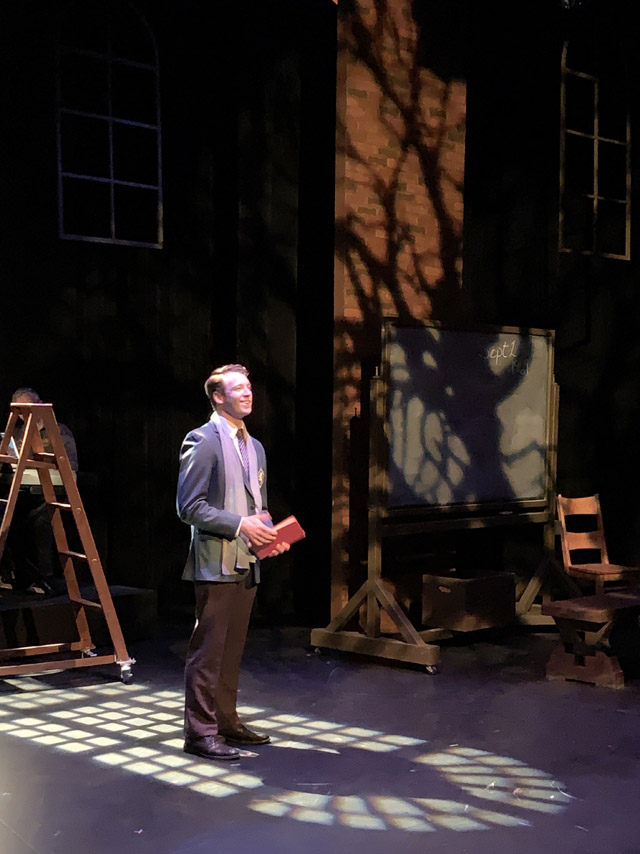
+++
Crossing Swords by Joe Slabe
CAST
Troy Goldthorp as Jeremy
Katie McMillan as Nicky
Adam Forward as David
Tory Doctor as Sir
Shari Wattling as Miss
PRODUCTION TEAM
Valerie Ann Pearson: Director
Christ Thompson: Assistant Director
Joe Slabe: Musical Director
Jocelyn Hoover Liever: Choreography
Karl Sine: Fight Director
Darcie Howe: Costume Design
Cat Bentley: Hair Design
Allie Higgins Pompu: Make-Up Design
JP Thibodeau: Set/Lighting Design
Emma Know: Props
Jennifer Merio: Marketing
Jody Low: Production Supervisor
+++
Joe Slabe is a Calgary-based writer, composer and musical director who obtained his Masters Degree in musical theatre composition from Goldsmiths College at the University of London. In 2013, Joe presented his play Crossing Swords at the New York Musical Theatre Festival where it won five NYMF awards including Excellence in Book Writing and the Theatre for the American Musical Prize. Joe also co-wrote the 2007 NYMF hit, Austentatious, which was recently published by Playscripts Inc. and has played London, New York, Philadelphia and Calgary. Other musicals Joe has written include, Maria Rasputin Presents (produced by Forte Musical Theatre Guild and nominated for three 2013 Betty Mitchell Awards including Outstanding New Play) If I Weren’t With You, (presented by Lunchbox Theatre and nominated for a 2013 Calgary Critics’ Award for Outstanding Production of a Musical), Jeremy de Bergerac (re-titled Crossing Swords and nominated for five 2012 Betty Mitchell Awards including Outstanding New Play, Outstanding Composition and Outstanding Production of a Musical) and Twisted (nominated for three 2011 Betty Mitchell Awards including Outstanding Production of a Musical). Joe is also an award-winning musical director having musically directed fourteen shows in Western Canada over the past four years. In that time, he has been recognized with three Betty Mitchell Awards for his work. Joe is the founding artistic director of Forte Musical Theatre Guild and received the 2004 Greg Bond Award for outstanding contributions to musical theatre in Calgary.
+++
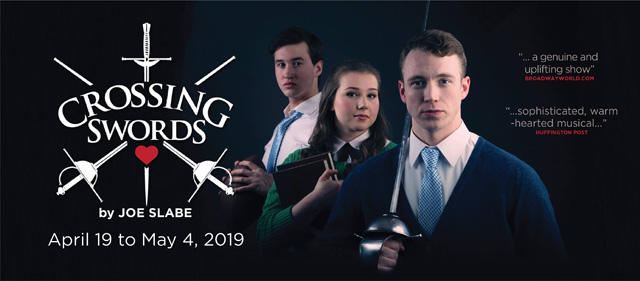
This interview has been edited for length and clarity. Last updated April 19, 2019.
